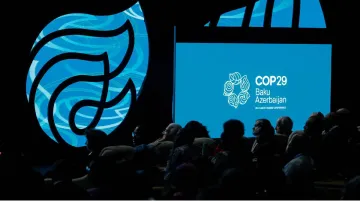At COP29, India, along with other developing nations, advocated for fair and effective climate finance agreements to support global climate action. Representing the Like-Minded Developing Countries (LMDCs), India highlighted the necessity for equitable financial backing from developed nations, emphasising the significant burden faced by vulnerable economies. Negotiators have pointed out that approximately 69 percent of current climate finance is provided as loans, which can create heavy debt burdens rather than alleviating economic pressures.
Pushing for Accountability and Consistency in Climate Funding
A focal point of the summit remains the New Collective Quantified Goal (NCQG) for climate finance, with ongoing discussions aimed at establishing clearer financial targets and accountability measures. The LMDCs, in collaboration with groups like the G77, BASIC, and the African and Arab nations, voiced concerns over the failure of developed countries to meet the longstanding USD 100 billion annual funding target, a contentious issue in international climate negotiations. Representatives have called for a transparent and consistent approach to climate finance, ensuring that commitments are tracked and honoured in good faith.
Current challenges
During the negotiations, India and other LMDC members expressed worries about stringent investment requirements being proposed, which could disadvantage smaller, less-developed nations. The bloc contended that such policies might favour countries with strong financial infrastructures, potentially sidelining those with limited access to investment. LMDC negotiators have reiterated the significance of the principle of "common but differentiated responsibilities," stressing that climate objectives must take into account the unique needs and capabilities of all nations.
Way forward
India and its LMDC partners are continuing to advocate for a universally agreed definition of climate finance, seeking accessible and fair funding options for all developing nations. As discussions progress, the group remains committed to achieving a balanced outcome that promotes inclusivity, accountability, and transparency in international climate finance.
ALSO READ: Hubble discovers Milky Way's impact on large Magellanic cloud

